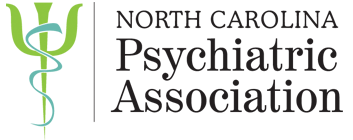Frequently Asked Questions
We have compiled several questions that our office fields on a regular basis. If your question is not included, please contact us , and we will do our best to find the answer. If you would like to suggest a question to be included in our Frequently Asked Questions, please contact us.
Q: What is the difference between a psychiatrist and a psychologist?
A: A psychiatrist is a medical doctor (M.D. or D.O.) who specializes in the diagnosis and treatment of mental illness; a psychiatrist can prescribe medications. After completing undergraduate education, psychiatrists typically attend a 4-year medical school, complete a 4-year residency, and many go on to complete a 1-3+ year fellowship program. During these 8-12 years of school and training, psychiatrists gain expertise in the diagnosis and treatment of mental health problems.
Psychologists are mental health professionals who are trained in the diagnosis and treatment of mental health problems, and in some cases, also perform scientific psychological testing. In North Carolina all licensed psychologists must earn a doctoral degree in psychology (Ph.D. or Psy.D.), which is comprised of post graduate education, training, research and a clinical internship. While psychologists in North Carolina are referred to as “Dr. Smith,” for example, because they hold a doctorate degree, they are not medical physicians and are not authorized to write prescriptions.
Q: What is psychotherapy?
A: Psychotherapy is a type of treatment for mental health patients. Most of the time, psychotherapy takes the form of talking between the clinician and the patient. Each clinician has his/her own style and preferred therapies. However, not all forms of psychotherapy are effective for all conditions. The therapy should be individualized to fit the needs of the patient.
Q: What are psychiatric medications? Why are they used?
A: There are many kinds of psychiatric medications. In Psychiatry, the most frequently prescribed medications are antidepressants, used to decrease the severity and length of time a patient suffers from depression. There are also effective medications for other conditions including anxiety, panic, addictions, severe mood swings, hyperactivity, and being out of touch with reality. All psychiatric (also called psychotropic) medications can have side effects.
It is very important that you only take medications that are prescribed to you by a medical doctor, and that you take medications as directed. Ask your psychiatrist or physician about the potential side effects and when to call your doctor if particular ones occur.
Q: If a person is a counselor, how do I know if he/she is qualified to help me?
A: Other mental health professionals also offer services and have their own credentials (licensed professional counselors, social workers, marriage and family therapists, etc.). We encourage you to verify the credentials of professionals you are considering. Most licensure boards have online tools to confirm a licensee’s status.
There are many ways to determine if a mental health professional is right for you. Often your family physician, family members or friends can provide you the names of professionals they know and trust. Also, many professional organizations offer referral information about their members; for example, to find a Psychiatrist, you can use our Find a Doctor Search Tool.
Q: I've been going for psychotheraphy, but my therapist just sits there and doesn't explain my problems to me. What should I do?
A: First talk with your provider about your concerns. Many times when the therapist understands your discomfort, he/she can make accommodations to be responsive to your needs. Sometimes the "match" between a patient and a therapist is not always right. If you can't resolve the issues with your therapist, you can ask your therapist for a referral to a colleague or you can talk to your personal physician about a referral to someone else.
Q: How do I file a complaint against a mental health provider?
A: Depending on the type of provider, the complaint process varies. Typically, the entity that licenses the provider will handle your complaint. The NC Psychiatric Association is a voluntary, professional association for psychiatrists (medical doctors who specialize in mental health). Our members adhere to ethical standards, and they are licensed by the NC Medical Board.
|
